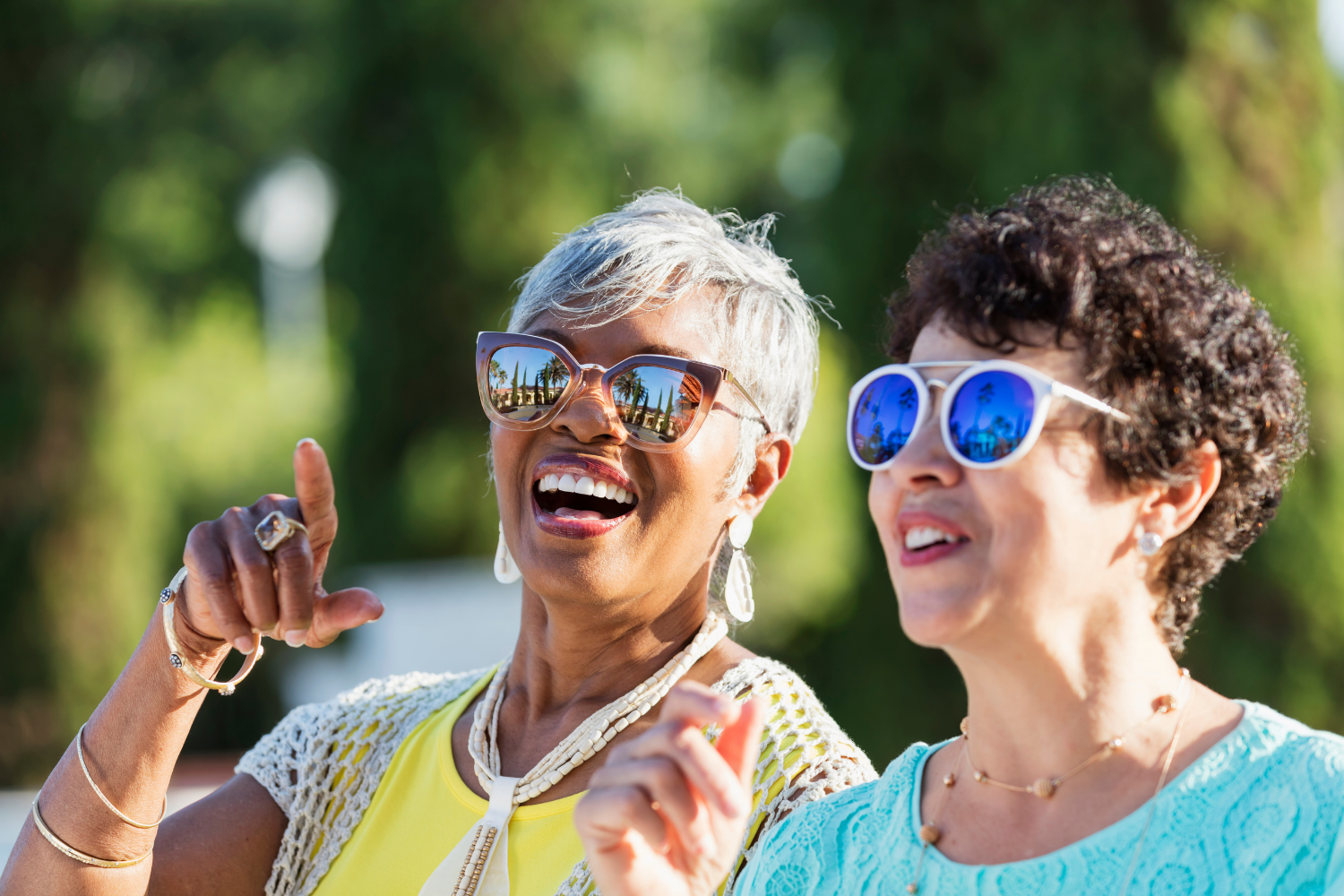Although some eye conditions and diseases stem from family history and may not be avoided, there are ways to help reduce the risk of some conditions that cause vision loss by living a healthy lifestyle.
As we age, the risk of vision loss increases. In fact, according to a special report from the American Foundation for the Blind, seniors are twice as likely to develop vision loss compared to those between the ages of 18 to 44. Macular degeneration, diabetic retinopathy, glaucoma and other age-related eye conditions are important to detect early, and in doing so may help seniors remain independent longer.
Taking steps to reduce the risk of vision loss impacts more than just the ability to see, vision loss has been linked to an increased risk of falls, depression, diabetes, and reduced cognition.
Here are 5 ways that seniors can help reduce the risk of vision loss in an effort to remain independent at home longer.
Regular Eye Exams with an Optometrist
One of the most important ways seniors can help reduce the risk of vision loss is through regular appointments with an eye care professional, also known as a Optometrist. Most Optometrists have the expertise needed to examine, diagnose, treat, and manage diseases and disorders affecting the eye. Early detection can mean early treatment. The American Academy of Ophthalmology recommends that people over the age of 65 have eye examinations annually, at the very least.
Nutrition and Exercise
Good nutrition and regular exercise provide seniors with many benefits, including combating vision loss. According to a study performed by the American Academy Ophthalmology, regular exercise may stave off eye disease due to increased blood flow to the retina. Eating healthy and regular exercise are important, but it should not replace regular appointments with an eye care professional.
Stop Smoking
Smoking can cause a plethora of health conditions including cancer, respiratory conditions, heart disease, diabetes, hearing, and vision loss. Smokers are twice as likely to develop age-related macular degeneration than nonsmokers. Quitting smoking can be challenging, but there are many resources, often at no or little cost, available for seniors and other adults in the Twin Cities area who want to quit using tobacco.
The Minnesota Department of Health has free support and resources to help individuals who want to quit nicotine.
Limit Screen Time
Screen time is the time spent using a device such as a computer, television, or mobile phone. Too much screen time can negatively impact eyesight and lead to vision loss. According to experts, people should spend no more than 2 hours per day in front of a screen (computer, tablet, phone). Another unintended side effect of too much screen time is spending less time engaging with others in the community, as overusing technology has also been shown to lead to social isolation and depression.
Protect Your Eyes with Sunglasses
One of the easiest ways to protect vision and help avoid vision loss is by wearing sunglasses outside. When shopping for sunglasses, the Centers for Disease Control and Prevention recommends eyewear that blocks our 99 to 100% of UV light. Even though sunglasses are an effective way to avoid potential vision loss, many people forgot to bring their glasses with them (25%). For sunglasses to be effective, seniors and other adults must have a plan and process for wearing them.
Comfort Keepers Can Help Seniors Dealing with Vision Loss
At Comfort Keepers, we strive to help seniors and other adults maintain their independence in the comfort of home. For seniors experiencing vision loss, our trained caregivers can provide one-on-one support that can help them remain safe and independent at home. Caregivers can also help with specific activities that bring joy and allow seniors to engage in the things they love to do. In-home care can start at a few hours per day or week, and expand to as much as 24-hour care. Give us a call, we can help.
Learn more about Comfort Keepers in-home care in the Twin Cities.










